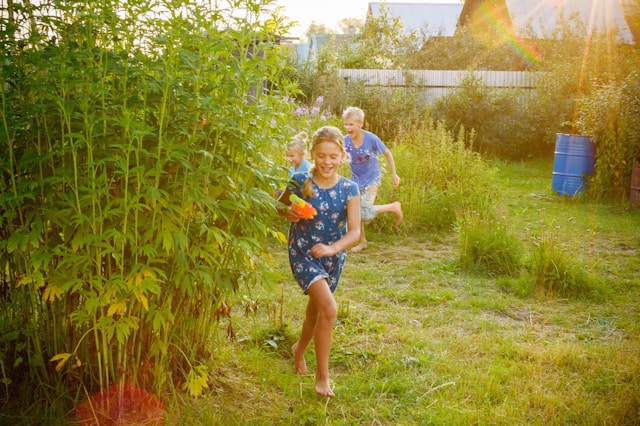The many benefits of outdoor play for children’s health have been well-documented. Indeed, a family doctor or a nurse who has completed an MSN FNP online program will advise you that playing outdoors is essential for a child’s health and development in several capacities – including physical, mental, emotional, and social.
If you’re a parent who wishes to prioritize your children’s health, it’s paramount that you encourage them to get outdoors, to get that essential fresh air and vitamin D, and most importantly, to move their bodies in healthy ways.
Here’s why.
The Physical Benefits Of Outdoor Play For Children
Unless you’ve been living under a rock, you’ll likely share the opinion that getting outside always makes you feel better – both mentally, and physically. It could be the fresh air, the greenery, or perhaps, the vitamin D. Indeed, the vitamin D from sunlight that our bodies absorb when we are outside can help us feel both healthier and stronger. Conversely, anyone who has ever experienced a vitamin D deficiency will know that this can lead them to feel weak and lethargic.
For children, in particular, the physical benefits of outdoor play are abundant – and not just in terms of essential vitamin D absorption and fresh air. Some of these benefits include:
- Maintaining a healthy weight and lower BMI by running around outdoors.
- Better motor skills, depth perception abilities, and spatial awareness.
- Boosted immune function and the improved ability to stave off diseases.
These benefits can support children’s physical health, and just as importantly, reduce their risk of becoming a statistic in America’s rapidly expanding childhood obesity epidemic. On this, recent studies have shown that the more children play outdoors, the less likely they are to be obese – 42% less, to be precise.
Mental And Emotional Benefits Of Outdoor Play For Children
Being outside can improve our mood. For children, the fresh air can help lift their spirits, teach them to feel connected with nature, and perhaps most importantly, regulate their emotions.
Being outdoors is grounding. Encourage your children to go barefoot on the grass, or to dig their toes into the sand on the beach. Also known as the practice of ‘earthing’, doing this ties us back to our primal roots. Some of the benefits of grounding or earthing are said to include:
- Decrease in fatigue levels.
- Reduction of chronic pain.
- Minimizing cardiovascular diseases such as hypertension.
- Mood improvements, and reduced risk of developing anxiety or depression.
For children, getting into the habit of grounding early in life can help set them up for a lifetime of positive mental and emotional health, and a better quality of life.
Social Development Benefits Of Outdoor Play For Children
Finally, outdoor play also aids children’s social development. How? By encouraging kids to play together outside, they learn to share, relate, and interact with others. This is pivotal to the development of their interpersonal skills, and their ability to develop close relationships.
Needless to say, socialization is key for a child to be able to enjoy a happy, full life. The importance of socialization in early childhood has been well-documented. Some of its advantages can include:
- Learning how to interact with other children, and adults, in manners that are appropriate and socially acceptable.
- Learning how to share, cooperate, and collaborate with others towards shared goals.
- Developing language, interpersonal, and communication skills.
- Developing social awareness, empathy, and compassion for others.
But why is this important? These are essential interpersonal skills that every child should develop if their parents want them to be able to navigate and manage social relationships throughout later life.
As discussed today, the benefits of outdoor play for children are multifaceted. Playing outdoors provides many advantages, and not just in terms of a child’s physical health. Although, the reduced risk of developing childhood obesity is arguably one of the most important motivators for parents to get their kids to play outside.
But beyond this, outdoor play can also help support a child’s mental and emotional well-being. It can also aid in children’s social development and their socialization with others by helping them develop relationship-building, communication, and interactive skills.
But perhaps the most important factor? Outdoor play makes kids happy.


